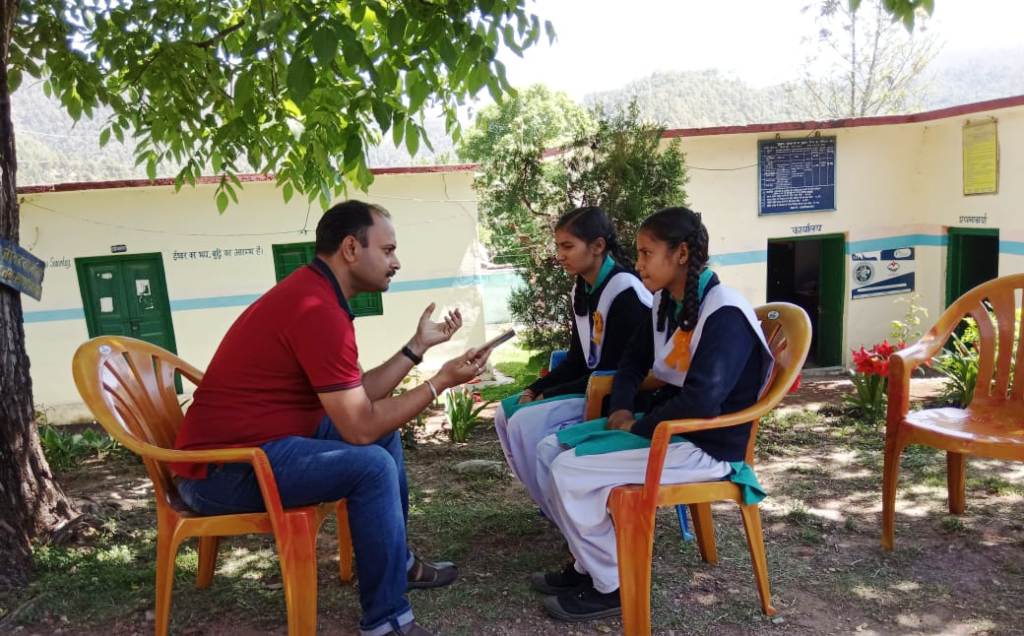CauseBecause’s research and evaluations wing has been steadily scaling up and expanding its footprints at the grassroots, especially in regions where social-development projects are being executed by large corporate groups and donor foundations. In the last FY, CauseBecause was commissioned to carry out thorough evaluation of all corporate social responsibility (CSR) projects of Hero MotoCorp (in Haryana, Rajasthan, Delhi, Uttarakhand, Gujarat and Manipur), the world’s largest two-wheeler company; a comprehensive model-village project executed by Max India Foundation in Uttarakhand; and a large-scale Digital Equaliser programme of The Hans Foundation which is currently being implemented in 180 schools in Uttarakhand.
Evaluations for NGOs that engaged CauseBecause primarily focused on educating and mainstreaming of young children, livelihood projects for rural women, and projects focused at primary healthcare, sanitation and environment protection.
CauseBecause also completed thorough monitoring for FY18″19 for flagship CSR programmes of an US$45 billion Indian corporation with interests in metals, textiles, carbon black, telecom and cement (name withheld as per non-disclosure agreement).
Brief outcomes – Hero MotoCorp CSR evaluation
Some of the most interesting outcomes this year have been from the flagship CSR programmes of Hero MotoCorp, with most of the company’s programmes having completed their first phase – or the three-year gestation period, as it is generally understood. The consolidated evaluation results proved that the ‘theory of social change’ was actually working on the ground; the primary CSR partners of the company had embraced the theory and embedded it in their work approach and strategy, and it was starting to make a difference. The evaluation team witnessed genuine success stories – firsthand accounts by children, youth (especially young girls), women, and elderly and differently-abled individuals. Words of appreciation came in from government officials, school principals, teachers and heads of numerous panchayats as well as sportspersons.
One of the key findings is that building or upgrading the permanent infrastructure at schools backed with soft interventions around health and hygiene is strengthening the fundamental education base. The attendance percentage of students, especially young girls, at most of the beneficiary schools has seen a considerable improvement. On the healthcare front, the company’s projects have not only made primary healthcare facilities accessible through mobile medical units and camps, but are also directly adding economic value to the communities by saving on major healthcare costs. Then there are projects that are focused on skilling and creating employment opportunities for girls – it was found by the evaluation team that most of the beneficiaries were gainfully employed and earning a dignified living for themselves and their families.
The company has also invested substantially in increasing the country’s green cover, on an average planting at the rate of one tree per minute (totalling over 14 lakh trees in the last FY). Increased penetration of solar streetlights and LED lamps in rural areas”supported by mass-awareness campaigns to sensitise the masses about climate change”added substantially to the social return on its CSR investments.
Brief outcomes – Max India
Max India Foundation, the CSR arm of Max Group, had invested in several project components with multiple implementation partners in order to create a model village in the vicinity of Vikas Nagar, Uttarakhand. Starting from interventions focused at solid-waste management (SWM) and sewage-treatment plant (STP) to healthcare and sanitation (including a sanitary-pad manufacturing facility being run by community girls), to focused skilling projects and education facilities for children, all of these complementary projects were assessed by CauseBecause to determine the impact thereof.
The outcomes showed that the healthcare projects filled the necessary gap that the government machinery had not been able to do over decades. The local communities, despite being poor – some of them below poverty line, were aware about their surrounding environment and made good use of the sanitation systems. The project focused at production and subsidised sales of sanitary pads as well as propagation of their use was well received in what are otherwise orthodox communities – the mindset and behavioural change was gradual but, in hindsight, inevitable.
A few abstracts from Max’s evaluation report were earlier published here.
Brief outcomes – The Hans Foundation
The Digital Equaliser project of The Hans Foundation threw up mixed results. The project did meet an essential objective – that of creating digital-education infrastructure in government schools located at remo te locations in the hills of Uttarakhand as well as building a base of trained teachers with the ability to embed technology in their everyday teachings. Some interventions that were to have an impact on the academic performance of students are being improvised and reworked upon as per evaluators’ feedback and recommendations.
te locations in the hills of Uttarakhand as well as building a base of trained teachers with the ability to embed technology in their everyday teachings. Some interventions that were to have an impact on the academic performance of students are being improvised and reworked upon as per evaluators’ feedback and recommendations.
A feature on the overall investments of The Hans Foundation and the change these have brought about in the 10 years of its operations in the country is being penned to be published shortly.
Team CauseBecause is trusted by government departments, corporate groups, corporate foundations and non-profit organisations for maintaining an unbiased and neutral stance. The CB team of independent evaluators with their extensive experience in the development sector conduct thorough evaluations to ascertain if a commissioned social project is meeting its desired objectives and whether it’s addressing the problem that was identified in the baseline/need studies, and analyse if the impact and the change that was hypothesised during the project conceptualisation is actually showing at the grassroots.

